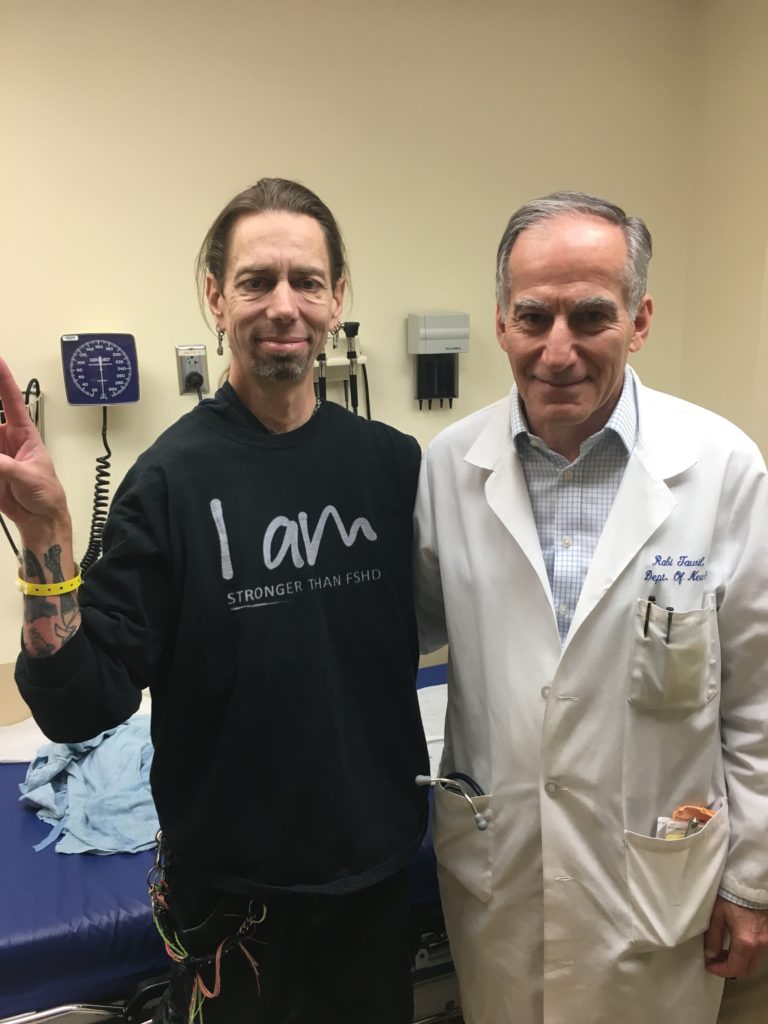
To crack the code of FSHD, patients are absolutely essential
All of the breakthroughs—the discovery of the genetic causes, understanding why some patients vary so greatly in the severity of their symptoms, teasing out the biochemical pathways that could point to future treatments—were made because patients stepped up to the plate.
Too often, we hear patients say they’ll volunteer when there’s a treatment. But we will never get to a treatment unless patients participate in fundamental research now. FSHD is uniquely human, so no laboratory mouse can ever fully model the disease. The genetic “package” that causes FSHD is found only in people. We owe an enormous debt to the patients who give DNA samples. Who submit to long interviews and exhausting physical tests. Allow a surgeon to cut out a small muscle sample. Who fight claustrophobia to lie in the narrow bore of an MRI machine.
Equally important are patients’ family members, both affected and unaffected, who provide the best experimental controls because of their shared genetic and environmental backgrounds. A parent or sibling who has very mild symptoms may hold the key to understanding the factors that protect against the full-blown development of FSHD symptoms in a more severely affected family member.
We are more hopeful today than ever before that a treatment is within sight. We cannot guarantee when that treatment will arrive, but here’s one thing we guarantee: If you volunteer for research, your participation will without question help move us a step closer to that day.
Scientific Overview of FSHD
Read the latest on wikipedia
Glossary of Scientific Terms
Science with a heart
Lucienne Ronco’s journey is a testament to the power of curiosity and compassion. With roots in the Pocono Mountains of Pennsylvania, she embarked on a path that would lead her… Read More »
The Global FSHD Innovation Hub
Accelerating clinical trials and access to treatments by Lawrence Korngut, MD, and Blaine Penny, Calgary, Canada This is a very exciting time for the FSHD community, as new therapeutics are… Read More »
Getting treatments to young patients
MOVE Peds is essential to pave the way by Natalie Katz, MD, and Katy de Valle, research physical therapist More than 50% of people with FSHD develop symptoms as children… Read More »
XPRIZE for FSHD research
SOLVE FSHD, a venture philanthropic organization established to catalyze innovation in Facioscapulohumeral muscular dystrophy (FSHD) research, is partnering with the nonprofit organization XPRIZE Foundation to host a global competition to… Read More »






